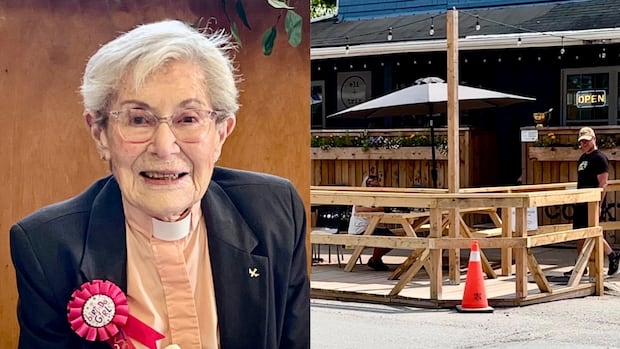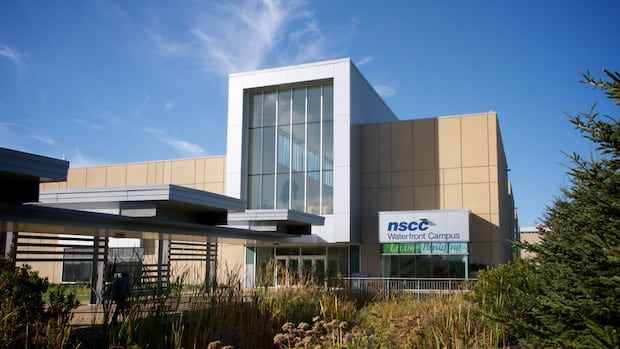Somerset’s ‘Time Machine’ to land at Atlantic Canada Aviation Museum
On Sunday mornings, Nancy Morse could hear, from her Berwick yard, the seven cylinders of the Boeing Stearman rumbling to life three kilometres away in Somerset.
Everybody else heard it, too.
By the time she’d arrive at her family’s strawberry farm, there’d already be a line of friends and neighbours wanting to feel what Harry Morse felt in the sky.
“Freedom,” said Nancy on Monday.
“For Dad, it was absolutely freedom. The sense of being away from everything. The solitude – getting up there to relax and think.”
Harry Morse died at 90 years old in March.
On Tuesday, the bright red plane Morse dubbed “The Time Machine,” that for three decades was part of community celebrations up and down the Annapolis Valley, will be trucked to the Atlantic Canada Aviation Museum in Enfield – a final gift from the farmer known as “the mayor of Somerset” to his community.
Dreams of the sky
Harry Morse dreamed of life in the air growing up on the family dairy farm in Somerset.
He’d lay in its front yard and watch the DeHaviland Mosquitos, Avro Ansons and Lockheed Hudsons piloted by young men training at what was then RAF Greenwood to fight Hitler from the air.
“He wanted to be a pilot. But when he got old enough to start making decisions of his own, his father had a heart attack, so he made the decision to stay on the farm,” said Nancy.
Harry Morse made the best of it.
He played for the Berwick Red Sox, took up boxing, archery and track and field.
He married Madelyn Chute and together they raised four children and grew the farm first into a successful tobacco operation and then converted to strawberries.
There was pain too.
They lost a child in infancy. In 1971 his vehicle was hit by a train – an employee was killed, and Harry and another were seriously injured. Six years later the family’s home burned down.
But Harry and Madilyn pushed through.
They donated portions of their crops to Feed Nova Scotia, the Berwick and District School breakfast and lunch programs along with local fire department and church fundraisers.
The sky never lost its hold on him.
‘We were never scared’
Nancy was eight when her father finally got his private pilot’s licence. Together with a few other local aviation enthusiasts he founded the Caribou Aircraft Company.
“He had this little tri-pacer that you could get a whole slew of us kids into the back of,” remembered Nancy.
“One seatbelt would go across three or four of us in the backseat. Scared? No, we were never scared.”
Then came the Stearman.
The Second World War trainer built by Boeing for United States and Canada was an open cockpit biplane renowned for its maneuverability.
Along with his friends at the Caribou Aircraft Company, Morse rebuilt it and fell in love.
He took it up and down the Valley, donating free rides as prizes at Apple Blossom Festivals and other community events.
They held an annual Strawberry Fly-in that drew aviation enthusiasts from around the Maritimes to their farm in Somerset.
Fond memories
What sticks with Nancy is time alone in the air with her father, talking over the headset about life.
Looking down at the wild churn of water around Cape Split, the fierce orangy-red cliffs of Kingsport, his hand pointing down to “Granny Morse’s” cottage in Turners River.
She can still feel her body pull her into the old Stearman’s seat as her father banked tight.
“It was really important to Dad to have a legacy,” said Nancy.
“He liked being in the limelight. Enjoyed talking about his plane, and he related to people well through that. As a family, we thought we don’t really want this plane to leave Nova Scotia.”
And so, on Tuesday, a piece of Somerset’s history will arrive at the Atlantic Canada Aviation Museum.



